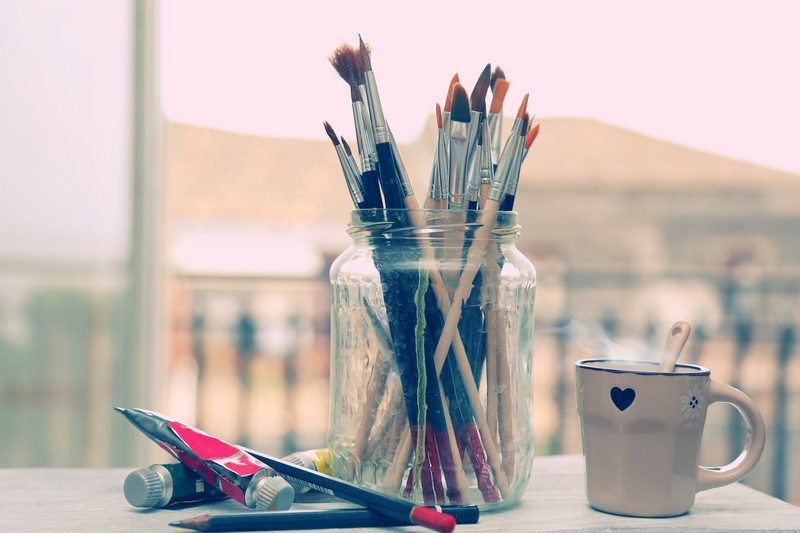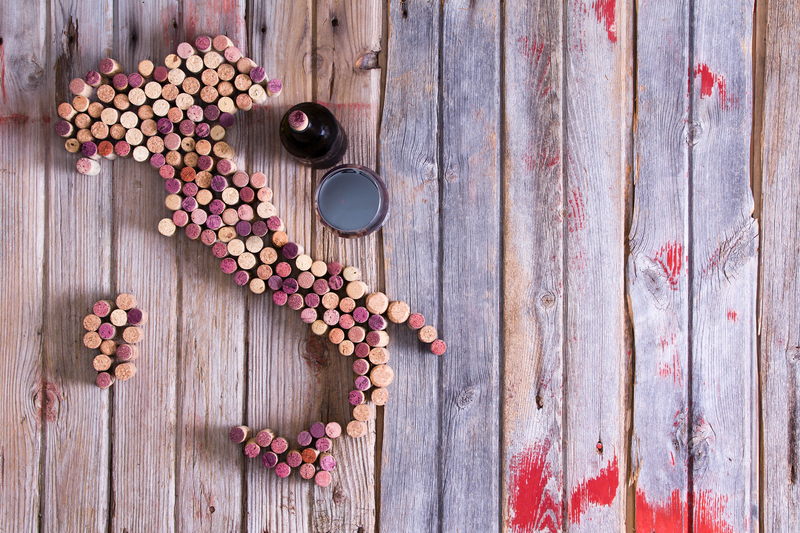Create Calm: Stress Reduction through the Art of De-cluttering
Our fast-paced digital world brings with it an increasing sense of chaos, busyness, and stress. For many, clutter--both physical and mental--fuels this anxiety, making it difficult to find peace at home and work. But what if the path to inner tranquility lies in something as simple as decluttering? In this comprehensive guide, we'll explore how the art of de-cluttering can reduce stress, improve well-being, and help you reclaim a sense of calm in your everyday life.
Why Clutter Causes Stress: Exploring the Mind-Environment Connection
Clutter is more than just an unsightly mess. Research indicates that visual and mental clutter can significantly hinder our ability to focus, leading to feelings of overwhelm and frustration. When your environment is filled with disorder, it signals your brain that your work isn't done, keeping you in a constant state of stress.
- Visual Overload: A cluttered environment bombards your senses and reduces your brain's processing capacity.
- Decision Fatigue: The more objects in your surroundings, the more decisions you have to make, draining mental energy.
- Anxiety Triggers: Messy environments trigger signals of danger and disorder, heightening cortisol levels (the stress hormone).
Understanding this connection is the first step toward recognizing the importance of de-cluttering for stress reduction.

The Science Behind Decluttering and Stress Relief
Multiple studies have proven the positive effects of decluttering on mental health. In fact, researchers from the University of California found that individuals with cluttered homes have higher levels of cortisol and lower feelings of satisfaction. When participants organized their spaces, not only did their environments improve, but so did their mood and sense of control.
- Increased Productivity: A tidy space allows you to concentrate better and complete tasks more efficiently.
- Improved Sleep: A neat, clutter-free bedroom is linked to better quality rest, which is essential for stress reduction.
- Boosted Mood: The satisfaction of a clean space can enhance your mood and reduce anxiety instantly.
Decluttering offers a way to reclaim your environment and, by extension, your peace of mind.
How to Begin: Principles of Mindful De-cluttering
Before you embark on your journey, it's essential to understand the principles that underpin effective decluttering. The process is not just about throwing things away--it's about intentionally creating a space that supports your well-being.
- Be Intentional: Assess each item's purpose and value in your life.
- Work in Sections: Divide your space to avoid overwhelm and maintain focus.
- Practice Regularity: De-cluttering isn't a one-time event but an ongoing habit that nurtures calm.
Embracing the Art of De-cluttering
Taking a mindful approach--where you consciously consider what to keep, donate, or discard--can turn decluttering into an act of self-care. This process encourages self-reflection and helps clarify what truly matters, both materially and emotionally.
Action Steps: Your Roadmap to a Clutter-Free, Peaceful Space
Ready to create calm through decluttering? Here's a step-by-step guide to help you start transforming your space, and by extension, your mind:
Step 1: Set Clear Goals and Intentions
- Ask yourself why you want a tidier space. Is it to reduce daily stress, improve focus, or simply enjoy your environment?
- Visualize the outcome. Imagine how your space will look and feel when it supports relaxation and productivity.
Step 2: Schedule Your Sessions
- Break your de-cluttering into manageable chunks. Start with 15-30 minute sessions, focusing on one small area at a time (like a drawer or a shelf).
- Set a recurring reminder on your phone or calendar. Regular, bite-sized efforts prevent overwhelm and build consistency.
Step 3: Sort and Let Go
The classic "Three Box Method" works wonders:
- Keep: Items that are frequently used or hold sentimental value.
- Donate/Sell: Items in good condition that no longer serve you but may benefit someone else.
- Discard: Broken or useless items destined for recycling or the trash.
Ask yourself: "Does this bring me joy or serve a vital function?" If the answer is no, it may be time to let go.
Step 4: Organize What Remains
- Group similar items together. Clear containers or bins can help keep things tidy and easy to locate.
- Assign specific homes to each type of item. When everything has a place, it's easier to maintain order.
- Label storage for greater clarity and less searching.
Step 5: Establish Maintenance Rituals
- Daily habits like returning items to their designated places will keep clutter from piling up again.
- Weekly touch-ups ensure your space remains a sanctuary of calm and order.
Decluttering for Different Life Areas: Home, Workspace, and Mind
At Home: Decluttering to Create a Haven of Tranquility
Your home should be a retreat where you can unwind and recharge. Here are tips for creating a peaceful home through decluttering:
- Entryway: Designate a spot for keys, mail, and shoes to instantly reduce chaos when you walk in.
- Living Room: Use baskets for remote controls and magazines; keep flat surfaces as clear as possible.
- Bedroom: Remove unnecessary items from nightstands and under the bed, and opt for calming colors and soft textures.
- Kitchen: Clear counters of seldom-used appliances and organize pantry items in see-through containers.
- Bathroom: Regularly discard expired products and simplify your routines by minimizing items on sinks and shelves.
At Work: Streamlining Your Workspace for Less Stress
Whether working from home or at an office, a well-ordered desk can drastically improve stress reduction:
- File digitally whenever possible to minimize paper clutter.
- Designate zones for tasks (e.g., incoming, in-progress, completed).
- Limit desk items to essentials--remove seldom-used supplies.
- Declutter your digital workspace--organize desktop icons and purge unnecessary files.
Decluttering the Mind: A Critical Step in Achieving Calm
It's not just your physical space--your mental landscape also deserves attention. Mental decluttering can ease anxiety, boost focus, and foster inner calm.
- Journaling: Write down thoughts and worries to clear your mind.
- Meditation: Even a few minutes daily helps release mental clutter.
- Set boundaries: Limit information overload (unfollow accounts, unsubscribe from emails).
- Single-tasking: Focus on one activity at a time to minimize mental distractions.
Unique Decluttering Philosophies from Around the World
Embracing global perspectives on the art of de-cluttering for stress reduction can enrich your journey:
- Swedish 'Lagom': The philosophy of "just enough" encourages us to keep what serves us and release the rest, maximizing balance.
- Japanese Minimalism: As seen in Marie Kondo's KonMari Method, focus on items that "spark joy" and gratitude for those you release.
- Feng Shui (China): Rearranging and decluttering your space to balance energy flows and promote relaxation.
Practical Takeaways from These Traditions
- Be grateful for the things you let go--they served a purpose, but their time has passed.
- Balance is key. Extreme minimalism is not for everyone--choose what works for your lifestyle and comfort.
- Energy matters. Your environment's flow affects well-being and stress levels.
Benefits Beyond Stress Relief: What Decluttering Can Do for Your Life
While decluttering reduces stress, its impact goes even further. Consider these additional benefits:
- Saves Time: No more searching for lost items means extra moments for relaxation or hobbies.
- Encourages Mindful Consumption: You're less likely to buy unnecessary items, saving money and reducing waste.
- Supports Better Relationships: Tidy spaces can minimize household tensions and foster harmony.
- Improves Self-esteem and Confidence: Accomplishing a decluttering goal restores a sense of control and pride.
Common Obstacles & How to Overcome Them
It's normal to encounter challenges on your path to a more organized space. Here's how to handle some of the most common hurdles:
- Sentimental Attachment: It's hard to let go of keepsakes. Photograph items you wish to remember, then donate or recycle.
- Guilt About Waste: Offset this by donating or recycling what you can. Remember, keeping unused items doesn't honor their value.
- Overwhelm by the Size of the Task: Start small--one drawer, one shelf. Progress is progress, no matter how incremental.
- Lack of Time: Incorporate micro-decluttering: five-minute bursts between daily tasks can add up quickly.
Decluttering as a Lifelong Practice for Calm
True tranquility is not found in the absence of challenge, but in your ability to create calm within it. The art of de-cluttering offers both a starting point and a lifelong practice for managing stress and enhancing well-being.
By regularly evaluating your environment, gently letting go of what no longer serves you, and nurturing a more intentional relationship with your surroundings, you empower yourself to cultivate genuine peace--one cleared surface and one calm breath at a time.

Final Thoughts: Start Your Clutter-Free Journey
Whether you are driven to declutter to reduce stress, simplify your life, or simply find your keys more quickly, starting small can lead to powerful results. Remember, decluttering is not just about 'tidying up'--it is about mindfully curating your life to make more room for calm, joy, and well-being.
Take that first step today--your peaceful, stress-free space awaits.
Frequently Asked Questions about Decluttering for Stress Reduction
-
How often should I declutter to reduce stress?
Make decluttering a regular routine--weekly or monthly, depending on your space and lifestyle. -
What if I get stuck or overwhelmed?
Take breaks, ask for support, and remember that it's okay to go at your own pace. -
Can digital decluttering help with stress?
Absolutely--clearing your digital life can reduce mental clutter as effectively as organizing your physical space.
Start your decluttering journey now to create calm and reclaim your peace of mind!